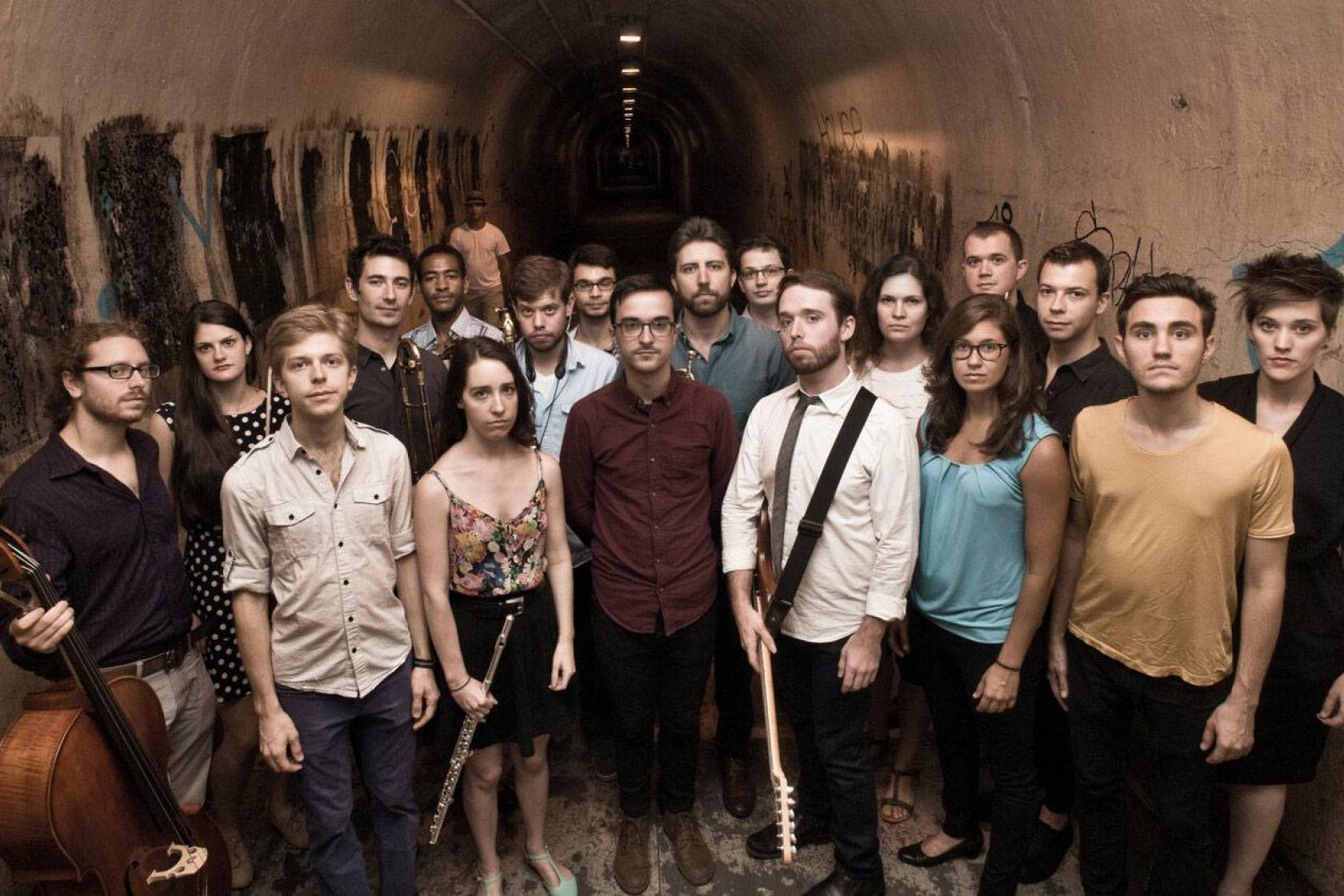Colgate’s music department will welcome New York City-based ensemble Contemporaneous on Oct. 26–29, the first of many visits as part of the group’s new three-year residency at the University.
Currently composed of 23 musicians, Contemporaneous was founded by students at Bard College. Known for their innovative educational programs, the group performs and promotes the work of living composers through concerts, commissions, and recordings. Their liberal arts background, says Assistant Professor of Music Ryan Chase, helps the musicians relate to Colgate students.
“The musicians have a real understanding of what our students encounter every day in their curriculum. They understand that, in the morning, students are scientists. In the afternoon, they might be painting or sculpting,” says Chase. “So the musicians really connect with students on that level.”
The group first visited Colgate in spring 2023, when they worked with students in Chase’s MUSI 245: Composition class. In addition to working with the musicians one-on-one, students composed a piece for Contemporaneous to play live in a public concert at the end of the semester.
“They really learned a lot in those three days. You could see that their skill levels, especially among our music majors, just shot up over the course of a weekend,” says Chase. “Students are very excited to have them back and get that sort of ‘booster shot’ of inspiration to keep them going.”
During their residency, Contemporaneous will provide numerous opportunities to work with campus and community members, including playing alongside students in workshops focused on improvisation. In line with the Third-Century Plan’s emphasis on interdisciplinary collaboration within the Middle Campus, Chase hopes to incorporate studio art, theater, and dance students into Contemporaneous’ work, perhaps creating visual art installations or performance pieces based on the group’s improvisation.
One highlight of the October 2023 visit, says Chase, is an event featuring a performance of famed composer Terry Riley’s “In C.” The piece, known as a staple of the 1960s minimalist movement, invites improvisation, and Chase encourages all local musicians to attend and join in the performance.
For Chase, the visit from Contemporaneous highlights the value of having visiting teachers and scholars share their knowledge and experience with students — especially those in the arts.
“All artists are very individual in the paths that they forge,” says Chase. “So to be able to see how a group like Contemporaneous functions, how they work together, how they cooperate, how they communicate with one another and with students — that's invaluable.”
For details of upcoming Contemporaneous appearances on campus, including workshops and performances, visit calendar.colgate.edu/musicevents.
